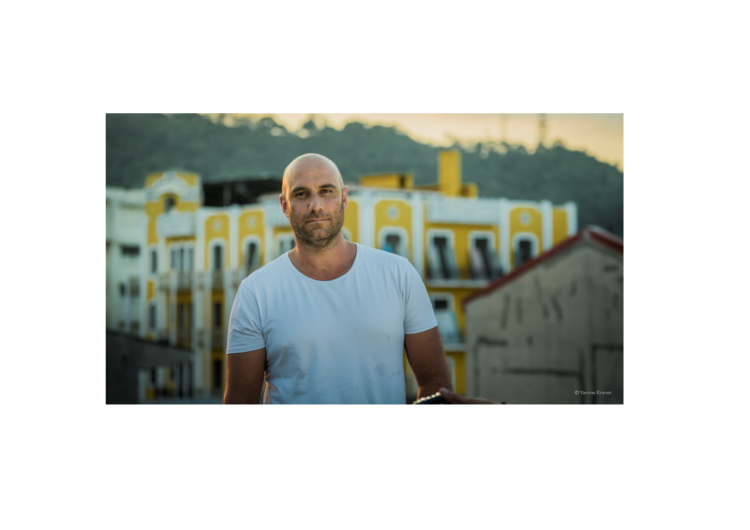
By Alan Hatfield
Experiential hospitality brand Selina LTD announced in December that it plans to list on the New York Stock Exchange through a merger with BOA Acquisition Corp. (NYSE: BOAS). Selina specializes in identifying and renovating underperforming hotels in conjunction with local real estate owners and artisans to add cultural flavor, co-working facilities, and local social experiences to the comfort and style of a boutique hotel.
Exec Edge sat down with Selina CEO & Co-Founder Rafael Museri to find out more.
- For those unfamiliar, can you tell us about Selina?
Selina is one of the world’s largest and fastest growing hospitality and experiential brands built to address the needs of Millennial and Gen Z travelers. Our network of boutique hotels, which includes 150 open or secured properties across 25 countries and six continents, is custom built for today’s nomadic traveler, providing them with a global infrastructure to seamlessly travel and work abroad.
Our locations blend beautifully designed accommodation with coworking, recreation, wellness, and local experiences. What’s important to note is that we create each property in partnership with local artists, creators and tastemakers, enabling us to work with the local communities to breathe new life into existing buildings or underperforming hotels. We can replicate this model of success from urban cities to remote beaches and jungles, where many of our hotels are located.
The Millennial and Gen Z cohort that we target – a quickly growing segment of the population that spends approximately $350 billion per year on travel – craves the type of unique experiences that Selina can offer including restaurants, bars, surfing, tours, yoga, mixers, concerts, co-working spaces, and more. However, the strong demand our properties are experiencing is not just from travelers; it’s from locals who frequent our locations to take advantage of the aforementioned amenities. We’re also benefiting greatly from the rise in remote work.
While we’re still a young company – we founded Selina in 2014 – we have experienced rapid sustained growth given the authentic experiences we’re able to create. We’re really proud that Selina has become a brand that transcends hospitality by creating a loyal community and a lifestyle that guests want to belong to long after their first visit. We believe we’re a true category disruptor.
- What made you decide to launch Selina?
My co-founder, Daniel Rudasevski, and I have spent a good portion of our lives traveling to different countries. Daniel has been surfing all over the world since he was a kid and I’m an avid cyclist, having explored over 40 countries on a touring bike. In living this nomadic lifestyle, we identified a large void in the hotel market – specifically quality accommodations tailored for Millennial and Gen-Z travelers – that was not served by corporate hotels, short-term rentals or youth hostels. This cohort seeks unique accommodations, local authenticity, personalized and consistent guest experiences, dedicated co-working space and the ability to meaningfully connect with others, and this type of option just didn’t exist globally.
In realizing this, we set out to create a venue that combined the social aspects of a local cultural hub with the design of a boutique hotel, and provided travelers a range of experiences and wellness activities. To test our idea, we found an underutilized hotel on a beach in Panama in a fisherman’s village called Pedasi, leased it, and within 90 days, converted it into an activated content, programming and experience-driven asset with offerings for both low-budget and higher income travelers. In short, we managed to design and operate a property that brought people together, from locals to international travelers. We focused on experience, food and beverage, and the ability to work while traveling and playing.
Fortunately, we quickly became the most successful hotel in the local region, with the highest occupancy. At that moment, we understood that this kind of experience-focused hospitality product delivers better economics than traditional hotels and can scale aggressively at pace. Since that time, we have expanded across North and South America, Europe, the Middle East and Australia.
- What’s driving the demand for your product?
There are a number of factors driving demand for our product. For one, there is a significant mismatch between demand and supply for attractively priced accommodations that serve the Millennial and Gen Z market. Consider this – 43% of travel spend is from Millennials and Gen Z and less than 3% of the 16.9 million global supply of hotel rooms are designed for them. No other hotel company has managed to create a product quite like ours and scale it globally. We believe our first mover advantage provides us with a sustainable competitive advantage when it comes to attracting travelers and building brand equity.
Another factor is the strategic location, design and activation of our properties, which appeal to locals and domestic travelers as much as global visitors. This has allowed us to continue growing at a time when global travel has been substantially reduced due to the Covid-19 pandemic. Our hotels are in the places locals and tourists alike want to visit, and they are activated with the exciting events, restaurants and other programming that support strong activity during high and low international travel seasons.
Beyond travelers, we continue to see very robust demand from local real estate and hotel owners who on average pay for 90% of the cost to transform their underperforming properties into vibrant, locally-inspired Selina-branded destinations. We are the brand partner of choice for this contingent given the nature of our offering and our proven ability to quickly and efficiently execute transformations that significantly improve the financial profile of properties. Given our proprietary technology – which we use to identify many of these underperforming properties – and our asset light operating model, we can consistently replicate this success.
In summary, we pride ourselves on being uniquely in tune with the needs of Gen Z and Millennial travelers, and we continue to focus on implementing new products – such as co-living and other flexible travel products – that provide the experiences this cohort is seeking. We believe the strong momentum we’re seeing will lead to continued growth throughout 2022 and beyond.
- How do you ensure Selina stands out in a crowded hospitality market?
At the end of the day, it comes down to our intense focus on the guest experience. We exist to manufacture authentic environments that facilitate meaningful connections. “Meaningful” is the key word here. We work diligently to measure our success in this regard, and it has to go beyond the bottom line. We’re proud of the fact that 66% of guests, on average, report meeting a new friend during their stay. This is a key differentiator for Selina and one that’s very difficult to replicate.
What also makes us stand out is that we’re able to quickly and efficiently roll out destinations in a manner that we believe no other major hotel company has done successfully in this same way. Our business model is less about getting someone who is visiting a city to stay at our hotel and more about having each and every guest feel like they’re part of something. One way to determine if we’ve been successful is to examine our high Net Promoter Score and our large social media following, which consists of over 2 million people. Again, we’re building a loyal community and lifestyle that customers want to belong to long after their first stay.
One more important point is that we’re capable of meeting the needs of anyone who travels regularly – whether for business or pleasure – and is looking to immerse themselves in the culture of the local community. So, as work from home and remote work in general continues to become more institutionalized, we’re perfectly positioned to take advantage of this. We provide travelers with the flexibility, optionality and dependability they require to live happily and productively as digital nomads. In our view, no other hospitality brand does this as well as Selina.
- Selina is in the process of going public – how did you decide this was the right path for the company?
We’ve managed to grow Selina quickly over the last 7.5 years and see significant opportunity to continue to scale. Going public will enable us to accelerate our growth and bring Selina to more locations, travelers and local partners worldwide, further expanding our competitive moat. We also felt very comfortable with our partners in Brian and Ben Friedman at BOA Acquisition Corp. (NYSE: BOAS), who we were fortunate to work with in the past to develop and select hotel locations in the domestic 48. They understand our product, our target demographic and the power of our culture, and they bring incredible Wall Street and North American hospitality experience to Selina. The match with BOA and the timing of going public lined up perfectly for us. If you look at the tailwinds supporting our business – and there are many – it gave us great confidence that becoming a public issuer is the best path forward. Selina is well positioned to continue to benefit from the pent-up travel demand, the increase in remote working and the prioritization of health, wellness and experiences among our target customers, which we anticipate will accelerate in the coming years. We’re excited and energized by the path ahead.
- What does it mean to be a lifestyle brand?
For Selina, it’s about building an evolving community that people want to be actively involved in. It’s about helping Millennial and Gen Z travelers live life and explore the world on their terms. It’s about being associated with adventure, opportunity and friendship. All of these elements are critical not only to our success, but to the happiness and satisfaction of our guests and community members. We have managed to achieve our growth with very little marketing budget due to word of mouth endorsement among our community – this is a strong testament to our ability to stay true to our mission and deliver the types of products and authentic experiences that digital nomads want and need.
Contact:
Exec Edge
John Jannarone
Editor-in-Chief
editor@executives-edge.com







